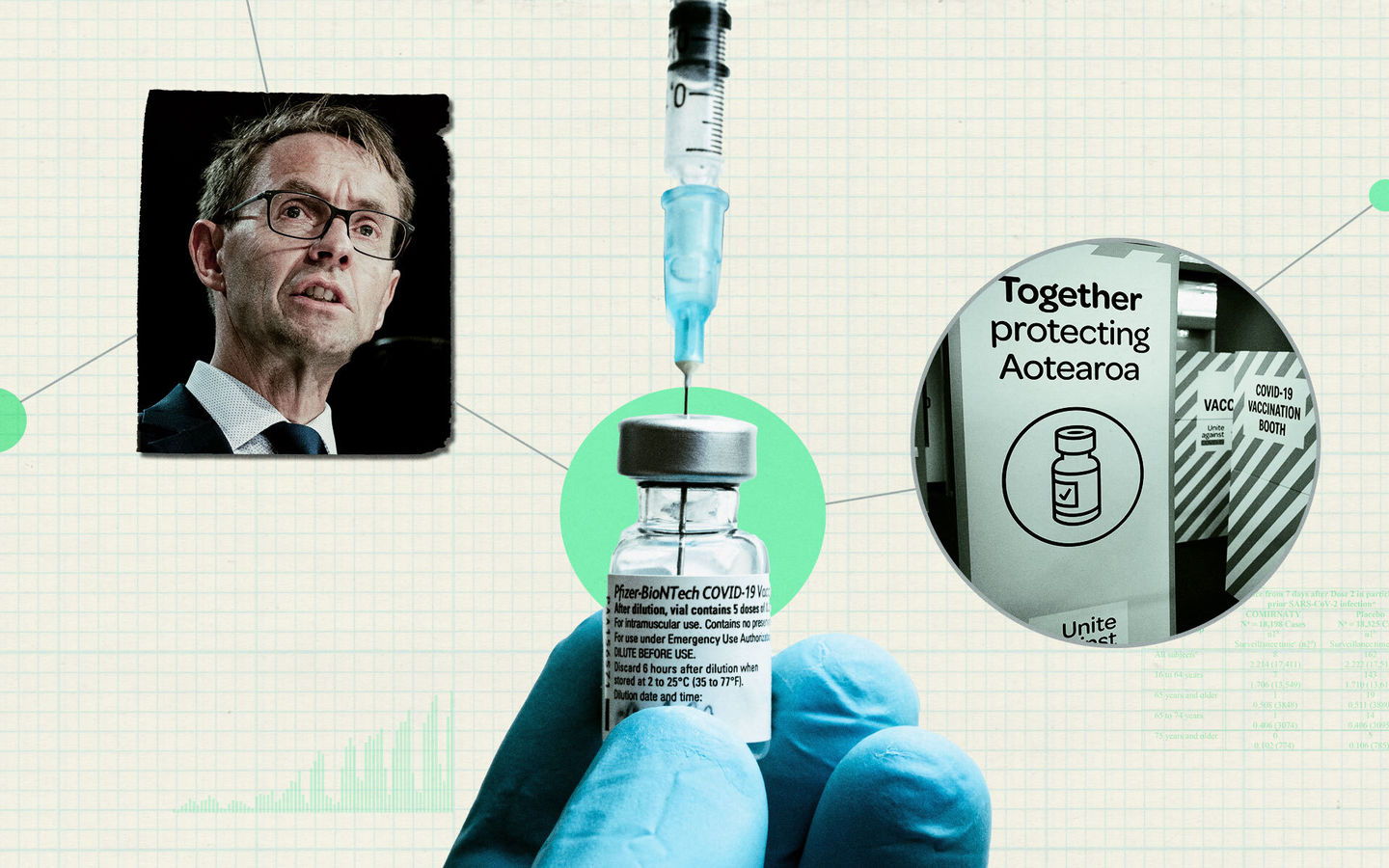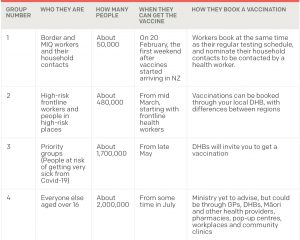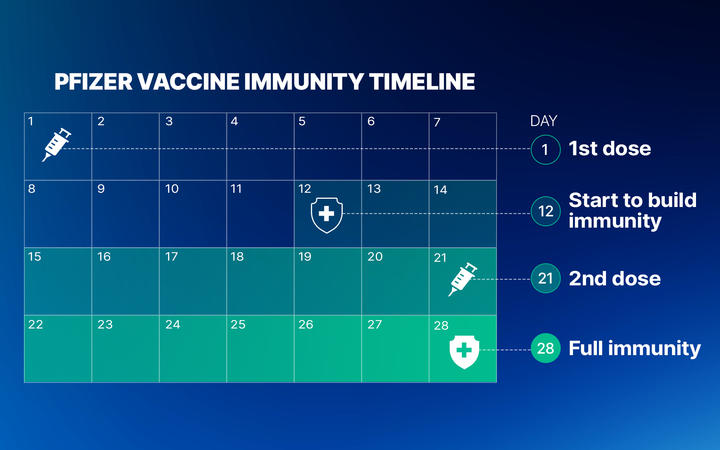Explainer – New Zealand aims to be able to give all over-16s the Covid-19 vaccine by the end of the year, but there has been much confusion over who gets it and when.
RNZ is here to clear it all up.

Photo: RNZ / Vinay Ranchhod
Who gets the Covid-19 vaccine?
The plan is for basically everyone in New Zealand to get the vaccine, for free.
The government has secured enough vaccines to immunise the entire population of New Zealand, and then some.
That doesn’t include people under 16 years old however, because of a need for more testing, although trials for young people are showing some promise.
Some other people cannot get vaccines because they have problems with their immune system, or because of allergic reactions.
What is the vaccine and how does it work?
The vaccine available to New Zealanders is the Pfizer/BioNTech vaccine.
New Zealand’s medicines regulator Medsafe granted formal approval for the Pfizer vaccine on 10 February, after it met conditions required by its provisional approval granted a week earlier.
The Pfizer version is an RNA-based vaccine, a new technology which does not contain a live virus. Getting the vaccine will not cause you to test positive for the virus.
It must be stored at -70C, and is transported in freezers.
Is it okay to also get the flu and MMR vaccines?
People are advised to leave a gap between getting the Covid-19 vaccine, and getting vaccines for other diseases.
- Flu vaccine: Wait two weeks
- MMR vaccine: Wait two weeks if you got Covid-19 vaccine first, four weeks if you got the MMR vaccine first
When and where can I get the vaccine?
The government plans to have administered a million vaccines by the end of June, and aims to ramp that up so that everyone over age 16 who wants to be is vaccinated by next year.
The rollout plan is focused on four groups, starting with workers in managed isolation and quarantine (MIQ):

So far, vaccination has been progressing largely to plan but some regions have been doing better than others.
Early in the rollout, Northland lagged behind other DHBs in vaccinations, and efforts to widen the criteria for people there has led to huge delays for some people.
If you’re not sure which of the four groups you’re in, you can use the Ministry of Health’s online tool to help you figure it out.
Some people can apply to get vaccinated earlier than they would otherwise, including those representing New Zealand overseas (either diplomatically or in sport) and on compassionate grounds.
What are the side effects?
Pfizer says – and this is backed up by Ministry of Health data – the most common side effects are a headache, dizziness, pain at the injection site, or feeling tired or nauseous.
Muscle aches, feeling unwell, chills, fever and joint pain are also possible. Rarely, it can cause temporary one-sided facial drooping (in every 1 in 1000 to 1 in 10,000 people) or a severe allergic reaction.
Director-General of Health Ashley Bloomfield says the second dose is more likely to cause reaction, but these are usually temporary.

